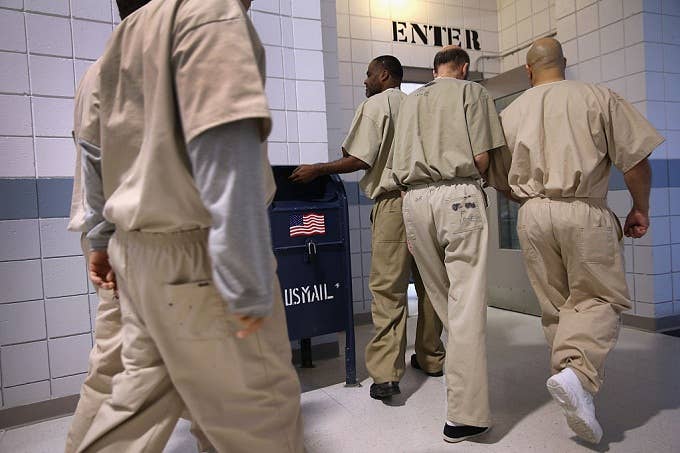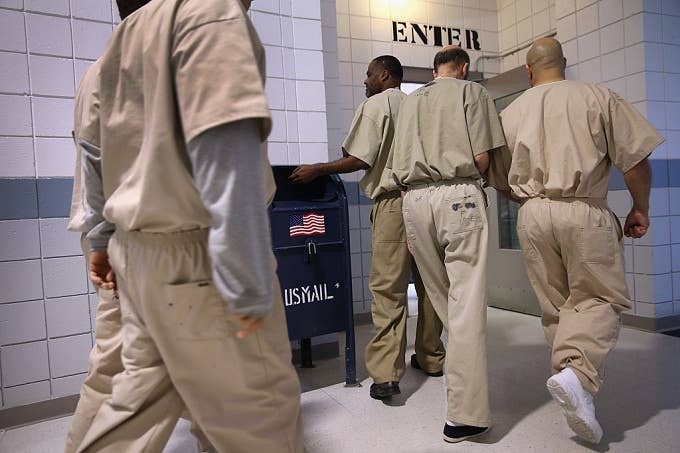
Two state prisons in New Jersey are banning their inmates from reading one of the most highly celebrated books tackling the relationship between race and mass incarceration. In response, the ACLU is arguing that the ban against The New Jim Crow: Mass Incarceration in the Age of Colorblindness is unconstitutional.
As the Intercept points out, Michelle Alexander’s 2012 book dismantled the deliberate discriminatory practices that create a system where black men disproportionately fill our country’s prisons. For incarcerated black men in particular to lose the opportunity to read it effectively prevents a means to examine their own reality. “The New Jim Crow chronicles how people of color are shut out of society by mass incarceration,” the ACLU wrote in a letter to the New Jersey state corrections officials.“That the very prisoners who experience the worst racial disparity in incarceration in the country should be prohibited from reading a book whose precise purpose is to examine and educate about that disparity adds insult to injury.”
In New Jersey, black men are incarcerated at approximately 12 times the rate of white inmates. This number is double the national average, which is about five black men for every single white inmate. Black men make up only 15 percent of New Jersey’s population, and yet 60 percent of its prisons. These discordant statistics are exactly the kind of thing Alexander evaluates in her book.“The ratios and percentages of mass incarceration play out in terms of human lives. Keeping a book that examines a national tragedy out of the hands of the people mired within it adds insult to injury,” said ACLU of New Jersey executive director Amol Sinha in a statement.
The ACLU is arguing that the ban on the book violates free speech rights protected by the First Amendment. It’s also pointing out that under New Jersey administrative code, books can only be banned when the information “‘is detrimental to the secure and orderly operation’ of the prison.’” ACLU attorney Tess Borden drafted the letter and told HuffPost the state’s ban was “ironic, misguided, and harmful.”
“New Jersey needs to eradicate its worst-in-the-nation racial disparities, not paper them over with a banned book list, hoping that people trapped in an unfair system will remain blind to its injustices,” Borden said.

